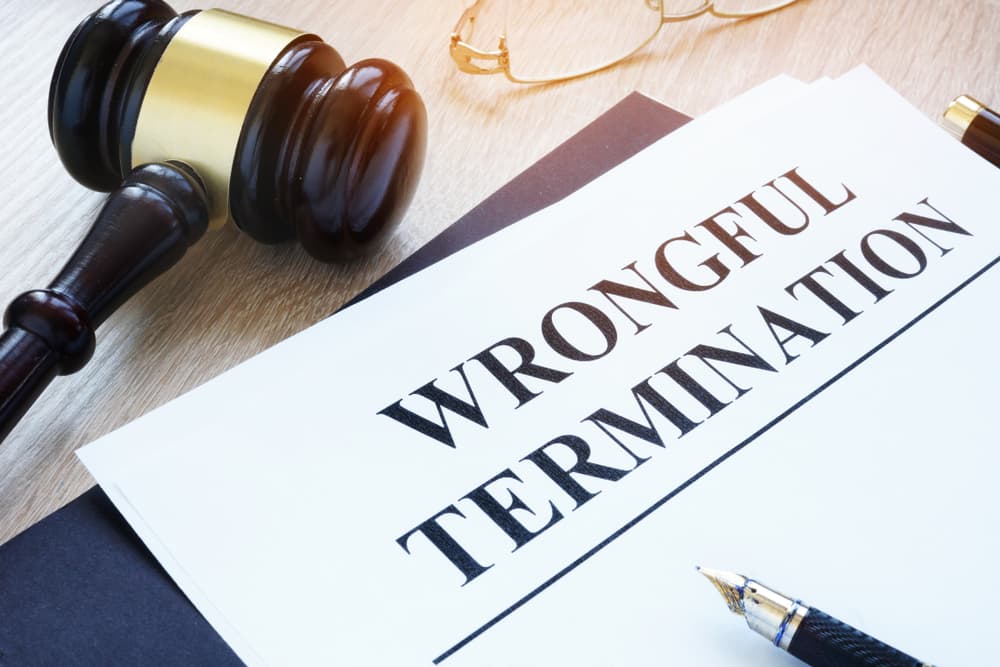How to Legally Protect Your Dental Business from Wrongful Termination Claims
Running a dental practice involves more than providing high-quality patient care; it also includes managing different employment-related legal issues. One area of particular concern is protecting your practice from wrongful termination claims. Even the most conscientious dental employers can face accusations if they do not handle terminations properly.
Here, we will explain the concept of wrongful termination, outline key steps for minimizing the risk of such claims, and offer guidance on when to consult a dental business attorney to ensure your practice is legally protected.
What is Wrongful Termination?

In simplest terms, wrongful termination occurs when an employer fires or lays off an employee in violation of legal protections or contractual obligations. Such violations can include firing someone due to their race, gender, age, disability status, or because they are engaging in legally protected activities such as whistleblowing, filing workplace complaints, or taking family/medical leave in compliance with the law. Wrongful termination claims may arise even in “at-will” employment situations if an employee believes the true reasons for their termination are prohibited by state or federal laws.
Because the dental industry is regulated by licensing requirements and strict health and safety standards, there are additional layers of employer responsibility. In many cases, hiring or firing decisions must also account for specific professional standards.
For example, a hygienist may claim wrongful termination if they believe they were fired for refusing to breach a health code regulation at the employer’s request. Therefore, it is important for dental business owners to understand both general employment laws and those specific to professional license holders in order to avoid legal disputes.
Creating Comprehensive Employment Policies
Developing clear, consistent, and comprehensive employment policies is one of the most effective ways to prevent wrongful termination claims. A well-written employee handbook should detail workplace rules, codes of conduct, disciplinary procedures, and termination protocols. Setting explicit expectations for all employees creates a framework that demonstrates fairness and transparency.
An employee handbook provides a transparent guide for both employees and employers, helping to create a safer work environment. Outlining your practice’s policies reduces the likelihood of confusion or misinterpretation. Additionally, it serves as evidence of the standards you set for your team—proof that may become valuable if a dispute arises. Whenever possible, consult a dental business attorney to ensure these policies conform to the specific legal nuances of the dental industry.
While relying on generic templates or standard HR forms may be tempting, having a dental lawyer review or help craft your policies can be beneficial. A dental business attorney can address nuances like employee licensure, patient privacy regulations, and the unique scope of procedures performed in your practice. By tailoring your employment policies to the realities of a dental office, you’ll be better protected against any allegation that you acted outside the law.
Training for Management and Supervisors
One of the best investments you can make is providing training for anyone in a supervisory position. A manager or supervisor who understands employment law—and the specialized context of dental practice regulations—will be less likely to make a mistake that might provoke a wrongful termination claim. This is particularly true in smaller dental offices where an office manager might juggle many responsibilities simultaneously.
Supervisors who communicate clearly and constructively with employees are better positioned to address performance issues early. Respectful communication also helps avoid misunderstandings that can escalate into formal disputes. Consider workshops focusing on conflict resolution, cultural sensitivity, or anti-discrimination practices.
Employment laws and regulations can change, which can immediately impact how you manage employees. Scheduling regular legal check-ins or subscribing to updates can ensure your supervisors remain informed. When in doubt about legal interpretations, consult a dental attorney. Their knowledge of employment law within the dental sector will keep your practice compliant with the latest regulations.
Handle Terminations with Care
Regardless of your best efforts, there may come a time when you must let an employee go. When mismanaged, this process can quickly lead to accusations of wrongful termination. Handling the termination process with care and consistency goes a long way toward minimizing such risks.
Before terminating an employee, review their performance records, disciplinary notices, and any relevant documentation. Double-check to ensure these records back up your decision and confirm you have followed the policies in your employee handbook. If you spot any inconsistencies, address them before proceeding with the termination.
Inconsistent terminations—where two employees commit the same offense, but only one is fired—raise immediate red flags. Consistency in applying your disciplinary policies underscores that the decision was not influenced by discrimination, retaliation, or other improper motives.
When delivering the news, do so in a private, respectful manner. Strive for a calm tone and a clear explanation of the grounds for termination. Avoid unnecessarily harsh language or personal criticisms. If emotions run high, it’s best to have a neutral third party, such as an HR representative or another manager, present to document the meeting.
Seek Legal Counsel from a Dental Business Attorney

You don’t need to wait until a termination dispute arises to consult with a dental attorney. An experienced dental business lawyer can establish proactive strategies, from crafting hiring policies to overseeing termination protocols. By seeking counsel early, you minimize the risk of making costly legal missteps that can lead to lawsuits.
While you can handle many day-to-day employment issues on your own, certain red flags should prompt immediate legal consultation. These include:
- An employee threatening legal action or filing an internal complaint based on discrimination.
- A termination involving an employee who recently took protected leave (such as family or medical leave).
- Situations where you suspect the employee might allege retaliation.
- Licensing or professional regulation issues.
- Uncertainty about local, state, or federal employment regulations.
Seek an attorney who focuses on employment law for dental practices. A general corporate lawyer might not be fully familiar with the unique regulatory landscape of dentistry. A dental attorney brings technical insight into issues like license protection, scope-of-practice guidelines, and patient privacy requirements, adding an extra layer of protection for your business.
Don’t Hesitate to Consult a Dental Business Lawyer
Protecting your dental business from wrongful termination claims requires vigilance, consistency, and an understanding of the legal frameworks that govern both general employment law and the dental profession specifically. By creating clear policies, maintaining thorough documentation, training management effectively, and handling terminations with care, you significantly reduce the likelihood of facing a wrongful termination suit.
However, even the most prepared dental employers can encounter challenging situations. In those moments, don’t hesitate to consult a dental lawyer for legal advice tailored to your practice. A proactive approach to employment law risks will not only protect your practice from lawsuits but will also create a more productive environment for you and your staff.
